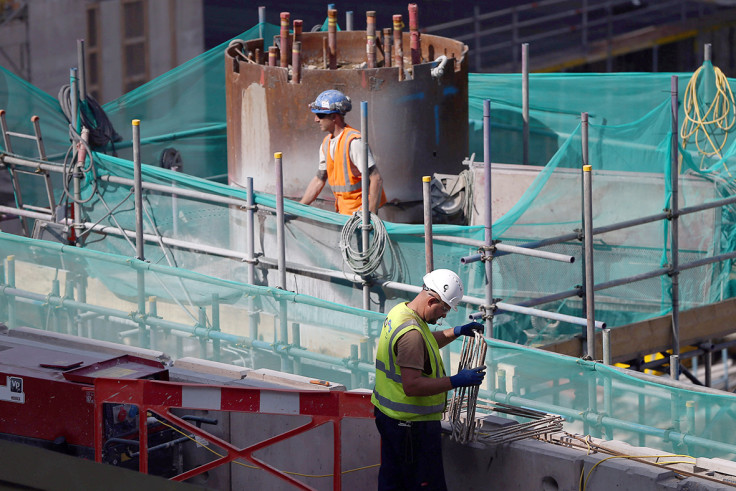UK construction sector grows at fastest pace in 2017 but recovery remains fragile
Weak pound and higher energy costs drive price pressures up in the industry, says Markit.

Britain's construction sector performed better than expected in April, recording the sharpest rate of increase so far in 2017, a survey released by IHS Markit on Wednesday (3 May) showed.
The closely watched Markit/CIPS UK Construction Purchasing Managers' Index (PMI) stood at 53.1 last month, compared with analysts' expectations for a 52 figure and with the 52.2 reading recorded in March.
While the reading was well below the post-crisis peak of 64.6 seen in January 2014, it also marked the sharpest rise in total construction output so far in 2017.
Markit attributed the uptick to strong growth in civil engineering, which expanded at the fastest rate in 13 months, and residential building activity, where growth hit a four-month high.
The report also highlighted a solid upturn in new work received by UK construction companies, with the rate of expansion the strongest seen so far this year. However, mirroring the trend seen for business activity, the latest upturn in new work remained much slower than that recorded at the beginning of 2014, when the post-crisis recovery peaked.
"April's survey reveals a positive start to the second quarter of 2017, with a robust upturn in civil engineering activity helping to boost the construction industry," said Tim Moore, senior economist at IHS Markit.
"However, the performance of the commercial building sector remained subdued in the context of the past four years."
Markit added that higher volumes of new work translated into more jobs being created in the sector, which saw the rate of employment grow at the strongest rate since May last year.
Meanwhile, cost burdens increased sharply due to the pound's ongoing weakness and higher energy and fuel costs.
"A sharp rate of input cost inflation persisted in April, reflecting an ongoing pass through of higher commodity prices, imported goods and energy costs," Moore added.
"However, the recent recovery in sterling may have started to help limit some cost pressures last month, as the overall rate of input price inflation moderated to a six-month low."
A report released earlier this week showed Britain's manufacturing sector grew at the fastest pace in three years in April, as output and new orders both grew more than expected.
Markit's manufacturing PMI surged from 54.2 in March to 57.3 last month, compared with analysts' expectations for a 54 reading and marking the ninth consecutive month of expansion.
© Copyright IBTimes 2025. All rights reserved.






















